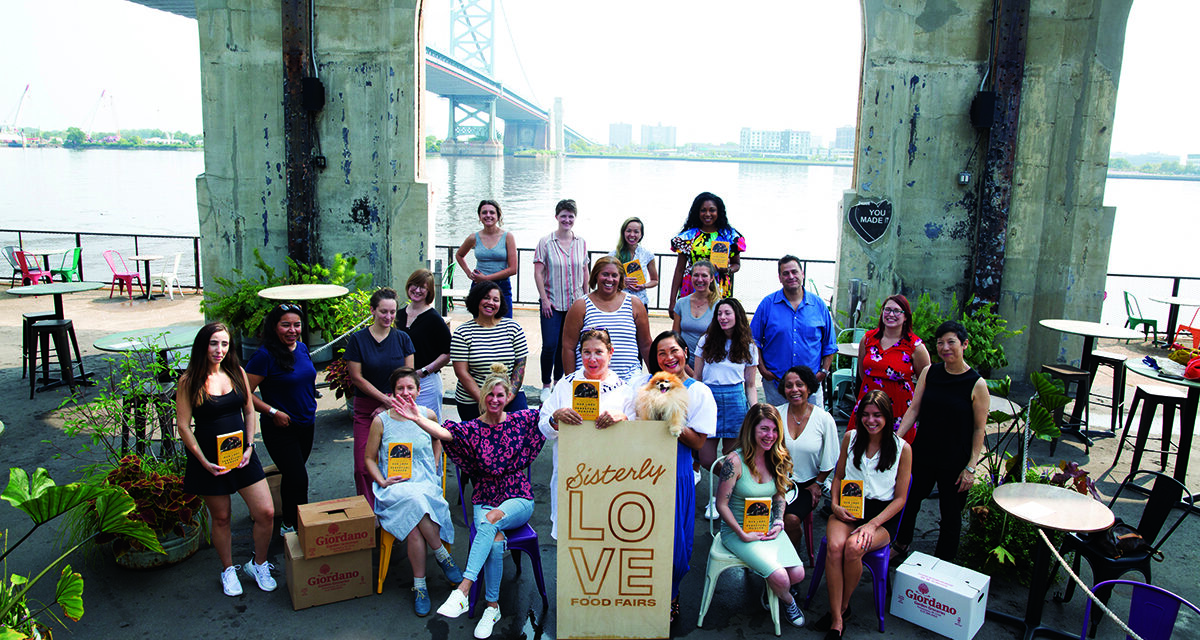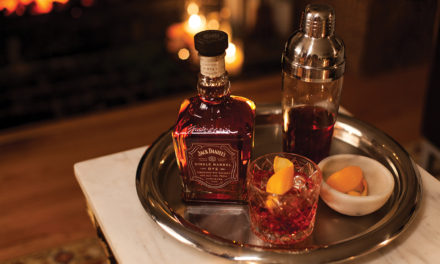The Philly-based organization first formed during COVID to help restaurateurs survive the pandemic. The effort evolved into an alliance of women who are using their unique talents and skills to mentor, empower, and network their way to gender equity in the food and hospitality space in the Philadelphia region and beyond.
ven before the first case of Covid-19 was reported in the United States, the restaurant industry was notoriously tough. The hours are grueling, and the competition is fierce. For women, the environmental and institutional challenges made for an even tougher climate. For proof, the National Restaurant Association published a study last year showing that although women dominate the industry in entry-level (63 percent) and mid-level (69 percent) positions, the percentage falters at the top. Among executive workers, that is down to 38 percent.
For women, institutional challenges, including pay inequity, minimal to no parental leave, and a lack of health care make it hard to sustain a career in the restaurant industry, so many drop out before they get to the top.
Now imagine you were one of those women running a restaurant in March of 2020, when things got weird, and then scary, and then downright doomsday-scenario daunting. As Covid-19 gripped the world and forced shutdowns and quarantines in just about every corner of the country, restaurateurs were forced to essentially reinvent their businesses. If customers wouldn’t be coming to their restaurants for the foreseeable future and with the supply chain in utter disarray, plenty of business owners battled sleepless nights wondering how they’d stay afloat.
It was an invitation from Chicago restaurateur Rohini Dey to join Let’s Talk, a collaboration of women restaurateurs, that gave Philly-area businesses a meaningful model. “I started hearing what other people across the country were doing,” says restaurateur Ellen Yin, the founder and co-owner of High Street Hospitality Group (HSHG). “Rohini invited me to Let’s Talk, and I thought it was such a great idea that I wanted to bring to Philadelphia. So, we launched the Sisterly Love Food Fair, and that tied everybody together. First there were the practical needs. Where do you get propane? Where do you get toilet paper? What are the new regulations? There were the technical aspects, but we also provided a support system for each other.”
We were just trying to figure out how to help each other how to release stress, and figure things out in a really difficult time for so many of us.
Under the umbrella of the Sisterly Love Collective, restaurateurs held Sunday Suppers, outdoor food fairs, markets, and workshops to raise money and awareness, share resources, and offer support. What they quickly found was a power in coming together that they could use to support each other and others, including nonprofits and fundraising for women’s causes.
The four co-chairs, restaurateurs Jill Weber, Jen Carroll, Sofia Deleon, and Ellen Yin —women with vastly different backgrounds and road maps to the restaurant and hospitality industry—shared with Real Woman how and why the Sisterly Love Collective (and organizations like it) are becoming so important to helping women thrive.
We see ourselves as thought leaders in this space. You don’t ask chefs to participate and not pay them them something. Women are great at flying by the seat of their pants, but that’s not necessarily sustainable. We are trying to mentor them into being better business owners.
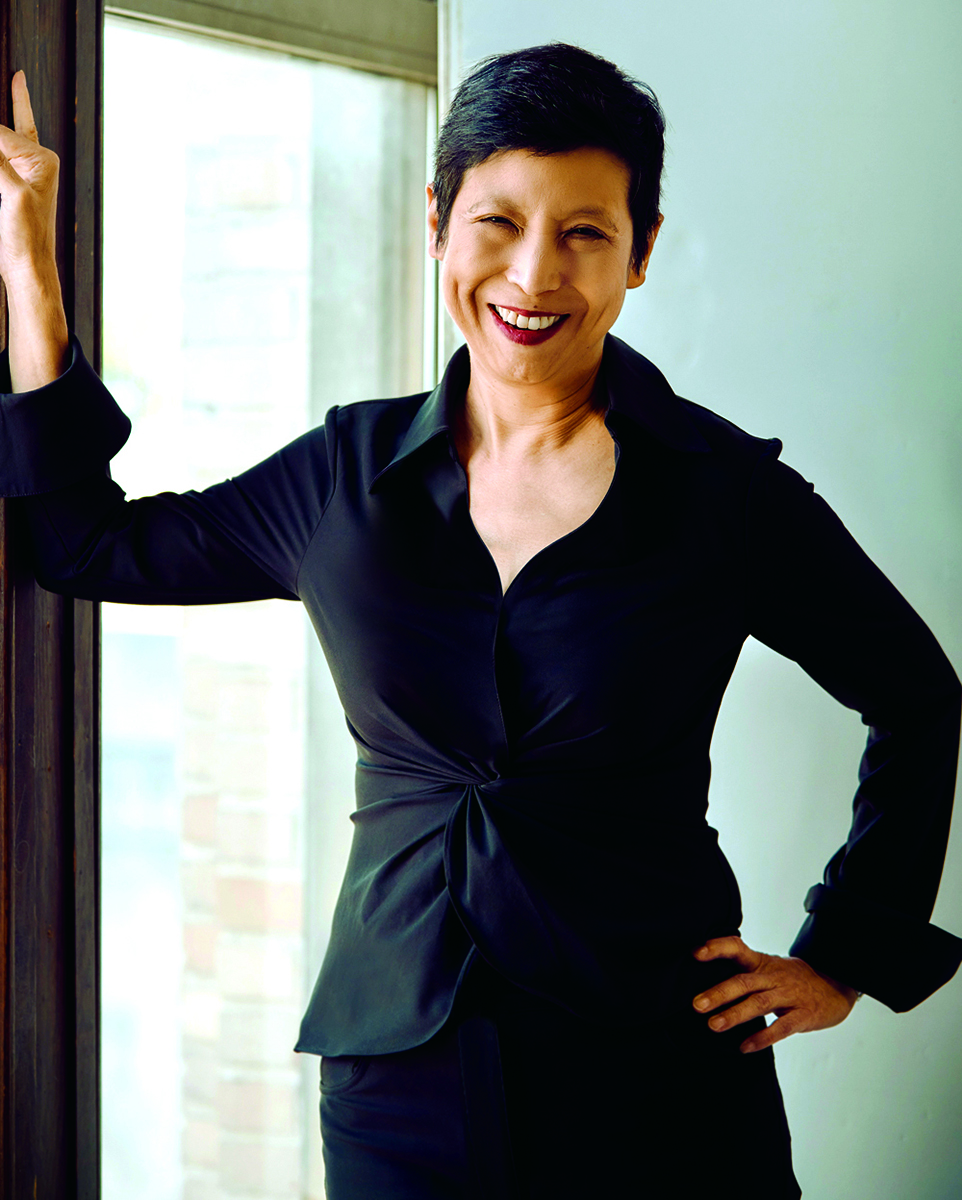
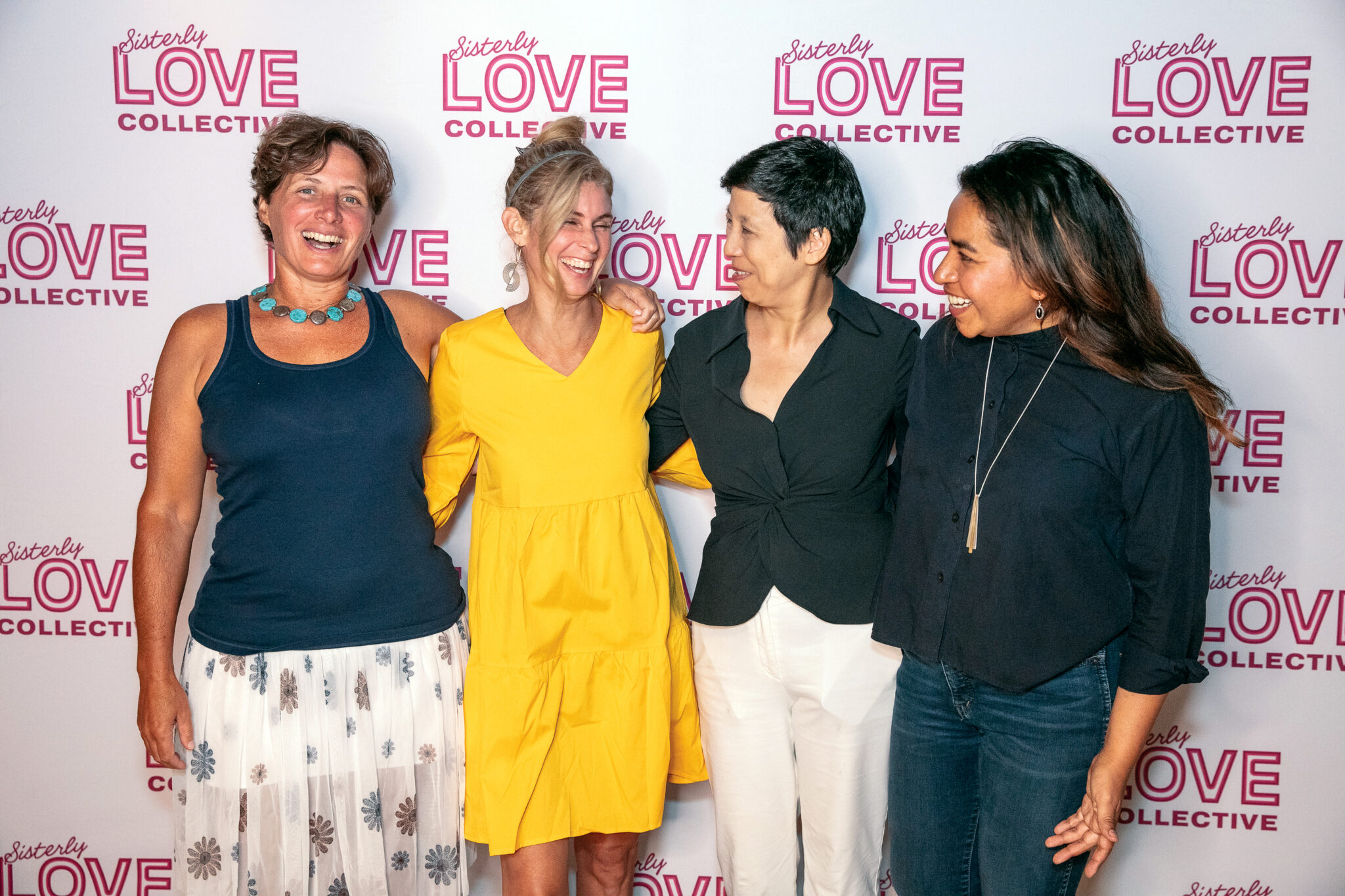

Chef Jen Carroll, Founder, Carroll Couture Cuisine
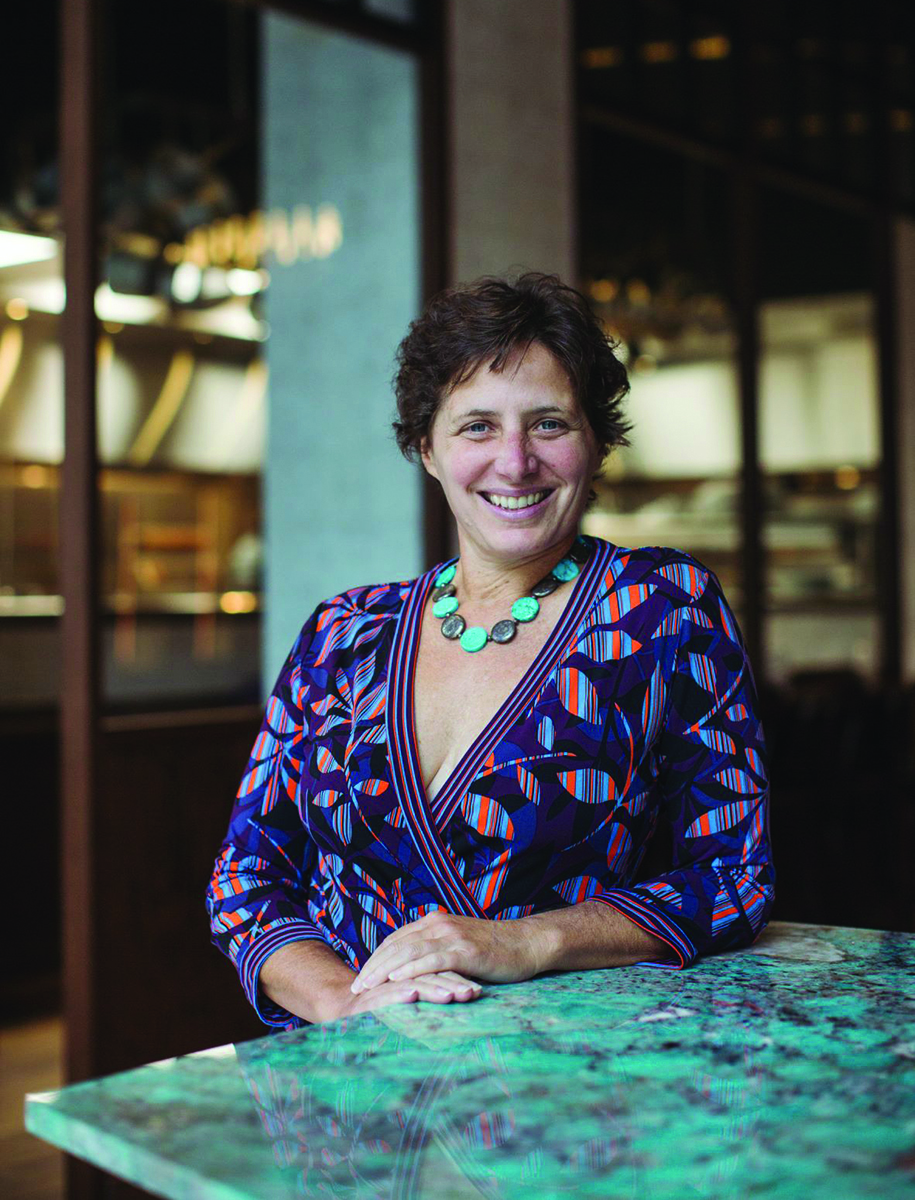
Jill Weber, Founder & Owner of Sojourn Philly
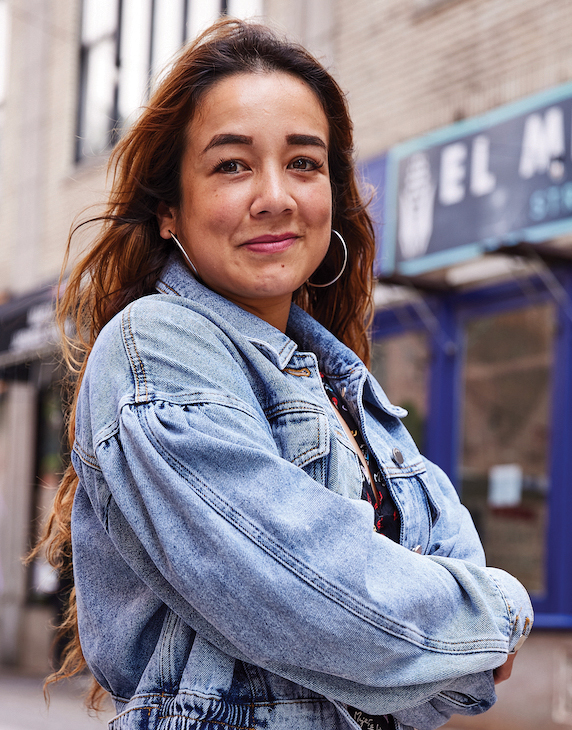
Sofia Deleon, Owner of El Merkury
RW: When you first started holding events during Covid under the Sisterly Love umbrella, what surprised you most?
Ellen Yin: Who would have thought we could put tables out in the middle of winter and sell things you don’t normally make. I remember being in the Italian market and under this tent that was dripping water. But you just had a feeling that this could work. Women are resilient in that way.
RW: How did the Sisterly Love Collective make the decision to expand into supporting other causes?
Jen Carroll: As we were growing and meeting, we decided that we wanted this alliance to have another piece of the mission. Besides just helping women in the food and hospitality industry, we also wanted to be able to give back a little bit to the community but we also wanted to be able to raise money, to be able to mentor and to teach and to put on professionalizing workshops, so that’s when we morphed from Let’s Talk and moved under the Les Dames d’Escoffier International – Philly Chapter so we could become a 501(c)(3).
RW: Helping each other have financially successful and sustainable restaurants is a huge part of the mission. How do you balance that with giving back?
Sofia Deleon: Along with a Women’s Way event we did in March, we did a huge supper where we raised $25,000 for Women Against Abuse. We’ve done happy hours where we’ve given back or given to different members in our group. We do networking, book promotions, professional workshops where we invited multiple people in and had a variety of sessions on sustainability, fermentation, public relations, branding, and a bunch of financial pieces. So we’re teaching and giving back in so many different ways.
RW: In terms of mentorship, what kinds of things are you able to teach women who are coming up in the restaurant industry?
Jill Weber: I love being in a relationship with younger people because you learn not only what’s en vogue but also things like the fact that our generation likes dark roast coffee, and the younger generation likes light roast. I remember when I graduated from college, a career counselor said you need to send out all these letters to help you get jobs and opportunities. A lot of younger people don’t even have these kinds of basic skills and other things that people would learn if they went to business schools. People always talk about soft skills. We can help them learn how to go about a formal negotiation. Or how do you get from one store to two stores, for example.
RW: Why is mentorship so crucial in the restaurant and hospitality industry, in particular?
EY: The hospitality industry is tough—it’s one of the riskiest businesses anyone can be in, but it can also be one of the most rewarding. It’s so competitive, the margins have been thin forever, and inflation creates even a more risk environment. There are a lot of questions that people don’t get answered, and our goal is to be a trusted organization where members can get their questions answered.
RW: Do you think the restaurant and hospitality industry is making a shift toward gender equity?
JC: I’ve been cooking professionally since 1996—a long time. I’ve seen a ton of change over the years in the industry, but when I started out you know, I didn’t really have many women to look up to, and I’ve worked in so many kitchens. There were a lot of times where I was the only woman there, and it was just about becoming part of the culture of the boy’s club and not having that sounding board to recognize things that probably were not OK.
RW: How can other women support the Sisterly Love Collective?
EY: We have a website, and people can get on our mailing list and follow our social media. We need participation. But we also have our own restaurants. We’d love donations, of course, but ultimately, we want to be sustainable on our own. If you like our message, come to our restaurants. Spend your money where your value and beliefs are. Women-owned businesses are an important part of our economy and I want to know who I should be supporting.
RW: What’s one major way that your experience with the Sisterly Love Collective has changed you as a person?
JC: We recently had a big dinner for the Sisterly Love group we were celebrating, and I was running late. I was having a really bad day. My mom was in the hospital, and I had lots of stressful stuff going on with the business. When I got there, I walked in, and everyone turned around. They said, ‘Jen, it’s so great to see you,’ and I just burst out crying, which is something I never ever would have done before. And it was it wasn’t like 10 people—it was like 30 people. But I felt safe enough to cry and to be upset in front of all these other women. In the past, I would have immediately laughed or just like brushed it off. In this space, I can be vulnerable. I can show that I can be strong and be powerful and be successful, but I’m still human, so I think that has made a huge difference in the way I relate to everybody now.

